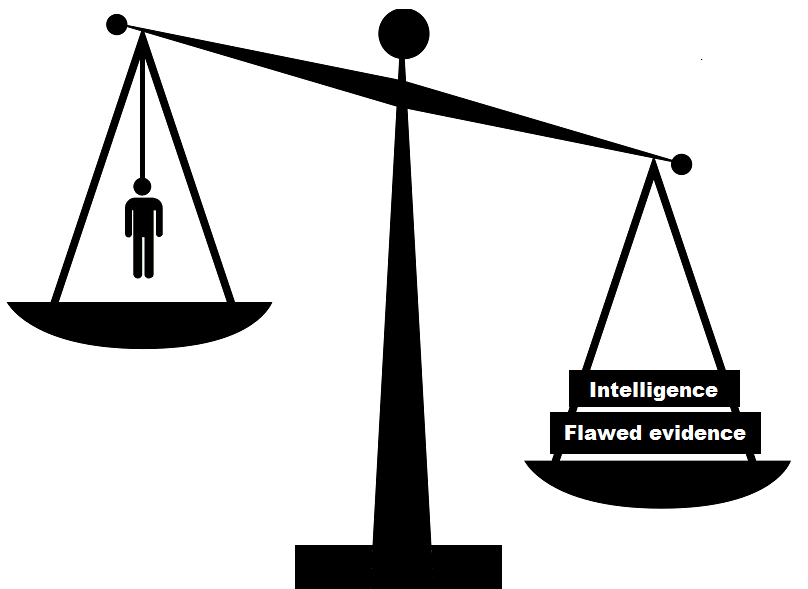 The French Embassy in Ottawa, the Centre for Israel and Jewish Affairs, and the manager of the synagogue on Rue Copernic have implied that the upholding of the extradition order against Dr. Hassan Diab does not assume his culpability and that Diab will be able to defend himself before France’s judicial system, which they say is as impartial as Canada’s.
The French Embassy in Ottawa, the Centre for Israel and Jewish Affairs, and the manager of the synagogue on Rue Copernic have implied that the upholding of the extradition order against Dr. Hassan Diab does not assume his culpability and that Diab will be able to defend himself before France’s judicial system, which they say is as impartial as Canada’s.If the French judicial system is impartial and just, and Dr. Diab is presumed innocent until proven guilty:
- Why did they whisk him off within 20 hours on the eve of his daughter's second birthday without the decency of letting him say goodbye to her and his expecting wife?
- Why did a Canadian judge say in a Canadian court that the evidence against him was convoluted, weak, very confusing and with conclusions that are suspect and likely wouldn't stand up in a Canadian court?
- Why does Human Rights Watch note that in France “decisions to arrest suspects and place them under formal investigation are based on a low standard of proof”, and lawyers complain “that the way in which judicial investigations in terrorism cases are conducted seriously undermines the right of each defendant to an effective defense”? Human Rights Watch also notes that “the prominent use of intelligence material in judicial investigations, in the context of the close links between judges and the intelligence services, raises concerns about procedural fairness and reliance on evidence obtained from third countries where torture and ill-treatment are routine”.
- Why did the Canadian Department of Justice, acting on behalf of France, withdraw French intelligence evidence because it came from sources even the French couldn't identify and couldn't provide assurances it wasn't produced under torture, an unacceptable risk noted by Amnesty International in its formal intervention in Dr. Diab's extradition hearing?
- How is it that the French judicial system can jail someone who is said to be “innocent until proven guilty” for up to 2 or more years (mis en examen) before deciding if they'll even hold a trial? Other jurisdictions do not permit such lengthy delays which effectively violate habeas corpus norms.
- Why couldn't Dr. Diab's lawyers present RCMP finger and palm print evidence that proves French prints are not those of Dr. Diab?
- Why did the French conclude that the handwriting of someone else, not Dr. Diab, was the same as that of the bomber's 5 block printed words on a hotel registration card, withdraw that “evidence” when this incompetence was identified, and submit a new handwriting analysis that was judged fundamentally flawed by at least three international handwriting experts?
- How was a “robot” sketch of a 40-ish moustached bomber confused with the 26 year old (at the time) Dr. Diab?
- Why did Canadian authorities and judges allow an extradition, which under Canadian law can only be to face charges, when Dr. Diab had not yet been charged?



